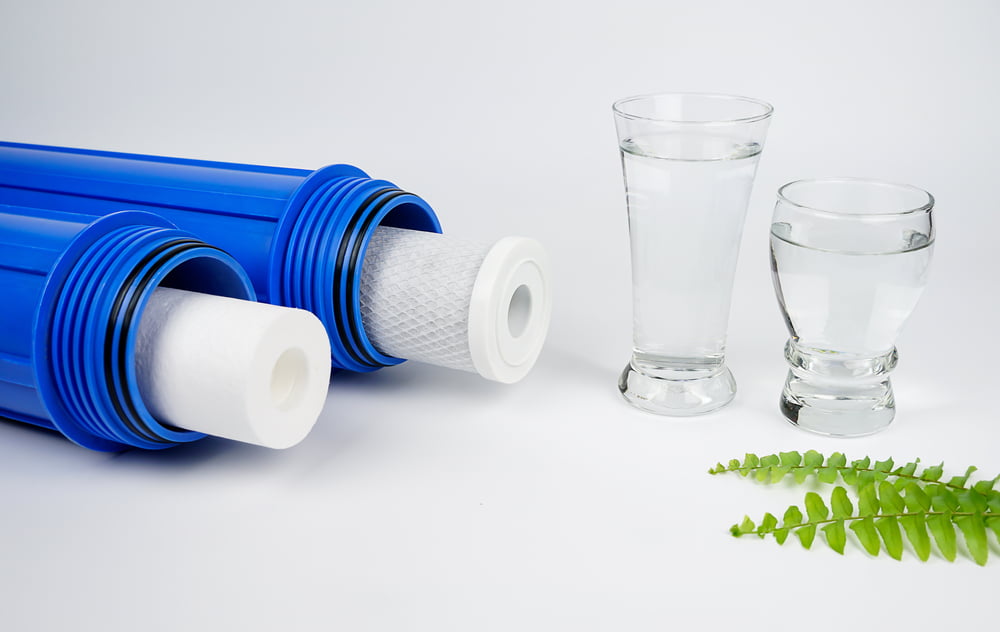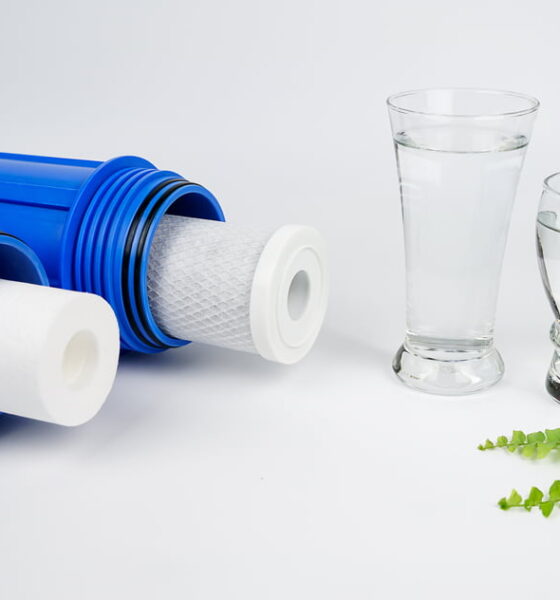

Environment
Environmental Issues Make Tap Water Filtration More Important than Ever
Water scarcity is becoming a greater concern in the United States and many other parts of the world. National Geographic reported that a myriad of problems were causing fresh water in the country to become more limited. Scientists have stated that the fresh, drinkable water supply cold drop by up to a third in the next 50 years.
Climate change is obviously a huge reason that this concern is growing. Rising temperatures in some parts of the country are causing water to dry up, which is going to hit some communities very hard. Rising populations are also affecting the water supply. Climate change has already created water supply issues in Australia. As populations expand, the demand for an increasingly limited supply of water is going to grow as well. Of course, growing populations are also leading to more pollution, which reduces the available water even further.
We are working hard to deal with these crises. Fighting climate change and water pollution is going to be essential. However, the steps we are taking might not be enough.
Therefore, communities and homes need to take more steps to increase their own accessibility to water. This might include filtering water that might not otherwise be fit to drink. Tap filtration systems might be more important in areas with high pollution as these concerns grow.
Tap Water Filtration is Going to Be Vital as Water Supplies Become More of a Concern
Water is a necessity. Our skin alone is made up of 30% water, and our bodies as a whole of around 70%. But the way we get our water supply to our home varies. A large majority of the United States drinks tap water daily, with the number hovering around 70%. The United States has some of the cleanest tap water in the world, but still, 55% of Americans who drink tap water are fearful that their tap water filtration systems are missing something.
Unfortunately, their fears are not unwarranted. There have been large lapses in judgment at American water filtration sites throughout the years. For example, during the Flint Michigan water crisis, water was plagued with lead and other toxic contaminants. That crisis began in 2014 and they are still recovering to this day.
There are several, smaller-scale examples of this happening throughout the country daily. A quick google of “water boil advisories in the US” will bring up any county, city, or town with a water boil at that time. For example, in Washington State, there are currently two water boil advisories and one don’t drink water advisory.
How do these water filtration catastrophes happen? Unfortunately, it has a lot to do with the tap water filtration systems in place. Many of them are old and are in need of repair or replacement. Regulations could be harsher as well as punishments for mishaps involving city or county water filtration systems. Learn more about how your tap water filtration system may be failing you and how you can avoid the consequences:
Contaminants still make their way into city water supplies
Regardless of how clean your city says its water is, there’s a chance that contaminants will make their way into the water supply. Some of the worst contaminants that have been found in city water supplies throughout the United States are arsenic, chlorine, pesticides, herbicides, and pharmaceutical drugs. It’s highly suggested that you get a water filter for any tap water you plan on using.
Home water filters are eco-friendly and effective. Reverse osmosis filters are the best choice to remove contaminants from your tap water. Wondering “how does reverse osmosis work?” Reverse osmosis filters contain a semi-permeable membrane that is made up of small pores. These small pores are used to block water contaminants. During filtration, pressure forces the water through the semipermeable membrane, making the water flow from the contaminated side to the uncontaminated side. The freshwater produced during this process is called the permeate whereas the contaminated water that is left behind is deemed the brine.
Tap Water Can Cause Cancer
A study documenting tap water consumption from 2010 to 2017 found that over 100,000-lifetime cancer cases were a direct result of the carcinogenic chemicals in the tap water. These contaminants are the very same chemicals that are meant to be keeping your tap water clean and drinkable. By-products of the chemicals used to disinfect the water break down over time, causing harm to those who consume the water rather than clarifying the water. Arsenic and radioactive pollutants were also found in the tap water during the testing. The constant consumption of either of these in small doses would inevitably lead to cancer or a high-risk disease of similar nature.
Tap Water Contains Chlorine
There is chlorine in all tap water, regardless of the filtration system in place in your county or city. The Center for Disease Control and Prevention has recommended a safe level of chlorine for tap water, as it’s used to keep the water supplies fresh and clean. This level is supposed to be kept at up to four milligrams of chlorine per liter of water, or four parts per million. Unfortunately, more amounts of chlorine do sneak through the tap water filtration systems, securing another reason you might want to think about investing in at least a filter for your tap water.
Not all Tap Water Is Bad Water
While there are lapses within the tap water filtration systems of the United States, our tap water still ranks within the top 20 nations with the best drinking water. As we stated previously, there are also ways to ensure your tap water is safe, such as investing in a reverse osmosis filter for your home faucets. People can also purchase water quality test strips if they’re interested in testing their tap water for themselves. If you’re a person or family that relies heavily on their tap supply, these may come in handy.
Tap Water Filtration is Going to Be More Important as Environmental Issues Grow
A number of environmental issues have led to a lot of concerns about the state of water security in the United States and abroad. People will need to invest in water filtration systems to address these concerns in the coming years.
































